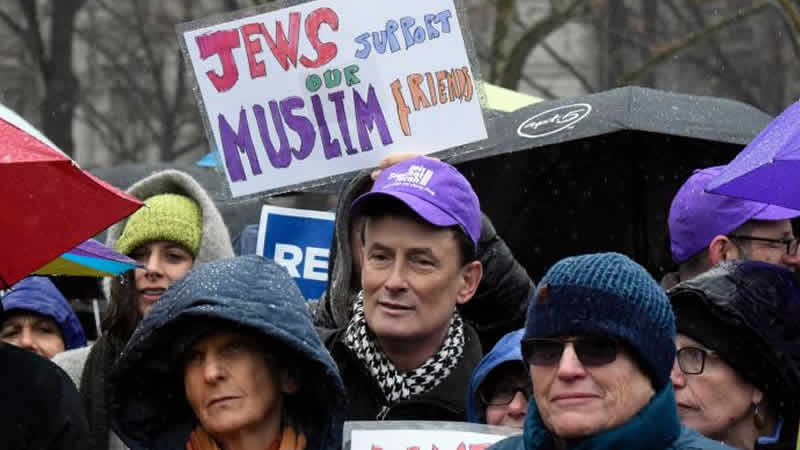Washington state’s attorney general has promised to uncover “what truly motivated” President Donald Trump’s executive order on immigration, an approach that could prompt a rare public examination of how a US president makes national security decisions.
[contentblock id=2 img=gcb.png]

The presidential order imposed a temporary ban on travellers from seven predominantly Muslim countries, but a federal judge has barred enforcement of the order while the court considers a challenge brought by Washington state. On Thursday, the US Court of Appeals for the 9th Circuit left the judge’s ruling in place without deciding the ultimate merits of either side’s arguments. In its decision, the 9th Circuit cited a previous case establishing that “circumstantial evidence of intent, including statements by decision makers, may be considered in evaluating whether a governmental action was motivated by a discriminatory purpose.” The Trump administration has argued that the ban is necessary to prevent potential terrorists from entering the country and is not discriminatory because the text of the order does not mention any particular religion. Washington Attorney General Bob Ferguson signalled on Sunday that he will move aggressively to obtain written documents and emails authored by administration officials that might contain evidence the order was unconstitutionally biased against Muslims or Islam.
[contentblock id=1 img=adsense.png]
He also said he would also move to depose administration officials. Legal scholars say this could move the court into uncharted waters. The idea of looking at motive has never really been applied to the president,” said John Yoo, a former Justice Department lawyer in the George W. Bush administration. It would represent a serious expansion of judicial oversight of what the president and the entire executive branch does,” said Yoo, now a professor at the University of California at Berkeley School of Law. Trump has harshly criticized the federal judge in Washington for his decision and a top White House aide on Sunday accused the 9th Circuit of a “judicial usurpation of power.” “The president’s powers here are beyond question,” senior policy adviser Stephen Miller told Fox News Sunday. US courts have historically been careful about probing the motives behind laws, in part out of respect for the separation of powers between branches of government.
Read More: Court Upholds Suspension Of Trump’s Travel Ban
But on questions of racial or religious discrimination, they have sometimes allowed intent to be examined. In 1993, for instance, the Supreme Court found that an ordinance banning animal sacrifice in Hialeah, Florida, though neutral on its face, was actually intended to discriminate against a Santeria church, which holds sacrifice as a sacred rite. Stephen Griffin, a professor of constitutional law at Tulane University, said cases like this make it clear that the court can look beyond the words of Trump’s executive order. “Motive is relevant,” he said. One question in the current case is likely to be which, if any, of Trump’s statements should be admissible in examining the administration’s motives in issuing the order. “If you’re allowed to use evidence from the campaign, the state’s case is very strong,” said Griffin.
[contentblock id=3 img=adsense.png]
In December, 2015, days after a mass attack by an Islamic State sympathizers in San Bernardino, California, Trump called for “a total and complete shutdown of Muslims entering the United States until our representatives can figure out what is going on.” He later said he supported only suspending immigration from areas with a history of terrorism. Stanford University Law School professor Michael McConnell, a former federal appeals judge, said the court should not consider campaign statements, because Trump only swore an oath to uphold the Constitution after he became president. In its complaint, Washington cited an interview the president did on the day the order was signed with the Christian Broadcasting Network, saying he would prioritise Christians in the Middle East for admission as refugees. Legal experts are divided on whether the state’s lawyers should be allowed to question the president’s advisers – and possibly even the president – in depositions.











